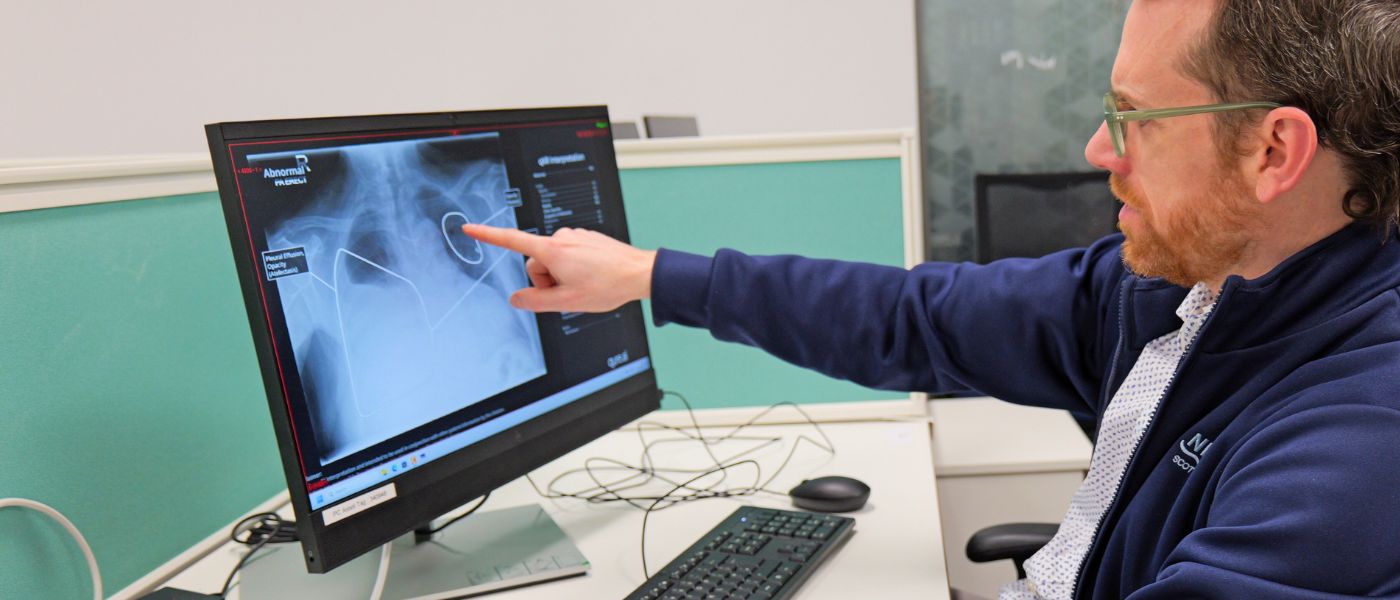Radiograph Accelerated Detection and Identification of Cancer in the Lung
The RADICAL study aims to evaluate the impact of Qure.ai’s qXR AI software in enhancing early lung cancer diagnosis by prioritising suspicious chest X-rays for faster radiologist review. The Digital Health Validation Lab has led on the design and delivery of the study to help integrate the software into real-world clinical workflow.
The RADICAL Study
Lung cancer continues to be a leading cause of cancer-related deaths both globally and in the UK. While early detection can significantly improve outcomes, most lung cancer cases are diagnosed at advanced stages, which reduces the chance of survival due to a lack of effective treatment options.
Currently, chest X-rays are often the initial investigation in the lung cancer diagnostic pathway, but a shortage of radiologists to interpret these X-rays often leads to delays in arranging follow-up computed tomography (CT) scans. AI software has the potential to improve this process by quickly identifying X-rays that are suspicious for cancer, allowing prompt reporting by radiologists and quicker CT scans.
About the Study
The RADICAL study aims to move this solution from theory to practice by integrating qXR, an AI solution from Qure.ai, into real-world clinical workflow. The AI solution automatically categorises chest X-rays to support clinical decision making, distinguishing between 'normal' images and those with abnormalities such as masses or lung nodules.
Taking place in a GP and outpatient setting throughout NHS Greater Glasgow and Clyde, the study seeks to analyse the impact of the qXR solution through a comprehensive evaluation of its technical performance and acceptability, health economics, and clinical effectiveness.
How DHVL Supported this Study
The Digital Health Validation Lab has led on the design and delivery of the study to help integrate the software into real-world clinical workflow. The study is currently taking place across NHS Greater Glasgow and Clyde and is supported by West of Scotland Innovation Hub.

The Team
- Qure.ai
- Digital Health Validation Lab (DHVL)
- West of Scotland Innovation Hub
- NHS Greater Glasgow & Clyde

